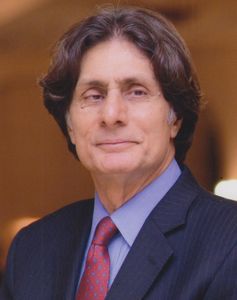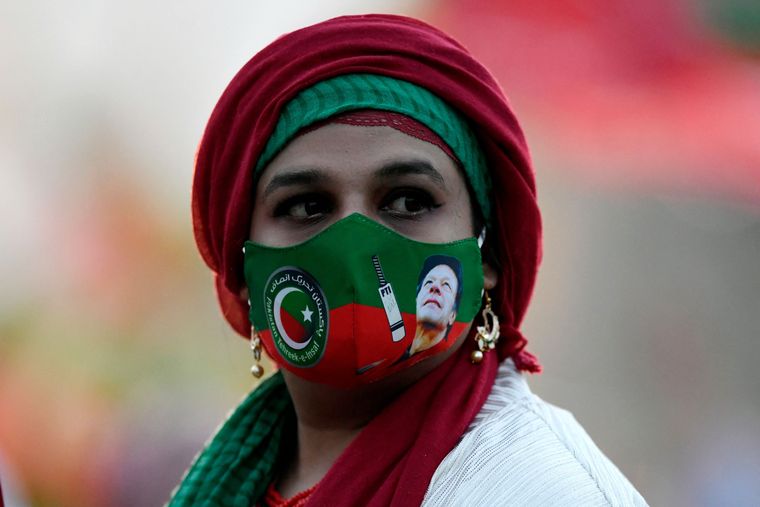Prime Minister Imran Khan has been accused of tearing up the constitution and staging a civilian coup. Your response.
Where does the civilian coup come from? He has actually worked strictly according to the constitution. He has made use of the powers [granted to him by the constitution].
Within the Parliament... there is speculation as to why the speaker did not preside over the session [in which the deputy speaker dismissed the no-confidence motion]. He did not preside over the session because the opposition had moved a motion of no confidence against him also in the morning. He was not entitled to preside over the session. So the deputy speaker was next in line.
This thing has been going on for a long time. We received our usual communication from our embassy in the US on March 7 and on March 8 the no-confidence motion was moved. If you remember, there was a meeting of the OIC (Organisation of Islamic Cooperation) finance ministers scheduled immediately after that. So we could not have gone public with it. But, immediately after that the prime minister shared the information with the top military leadership, a select number of cabinet members and select journalists. Then, he convened a meeting of the national security committee (NSC), which is the second most important body after the cabinet. It is more important in a sense because the top military officers also sit in.
The NSC came up with a statement where it was acknowledged that there was interference in the affairs of Pakistan and that was not acceptable. So the civil and military leadership agreed that there was an ongoing infringement on Pakistan’s sovereignty. We understand that the opposition’s move for a no-confidence motion was part of that plan. It was foreign inspired, foreign motivated and foreign funded. So, what were the options left for the government of Pakistan?
The opposition claims they were not kept in the loop.
Stop there. The leader of the opposition and some other members of the opposition are members of the NSC. Invitations were sent to them. This was a question that the court asked and insisted that they answer; it is a critical question. They did not attend the meeting. They do not have a locus standi that it was not shared with them. They were invited to attend the forum. They refused to attend the forum.
What is the way ahead? The polarised opposition and Khan are not seeing eye to eye. There seems to be no conversation across the aisle. Do you see this as a politically fragile time for Pakistan, regardless of the verdict?
There is no doubt about it. There are going to be re-elections. Unless the Supreme Court decides otherwise, elections will be held in the next 90 days.
Even if the opposition is able to defeat the government now, they can only form the government for a year or so before we head towards elections. But I see a lot of problems with that. What are they going to achieve in those days? They are going to undo whatever was achieved in the last three years, particularly with regard to their corruption cases.
The economy is a problem. Sri Lanka is a cautionary tale for the region. There is hyperinflation in Pakistan. There is an IMF loan issue. Do you see this as the biggest challenge for the interim government or the opposition, if it gains power? How do you see that playing out?
The economic issues are there. We cannot hide from that. But, the fact is that Pakistan has fared much better than the countries in the region in terms of dealing with Covid-19. Compared with India, we have done much better....
In terms of recovery, our GDP growth is 5.5 per cent, which is exceptionally good. About two years ago, we were at zero and there were serious doubts being expressed about our survival. I am not saying we do not have issues. Yes, IMF loans are there. Yes, other loans are there and we need to come up with a solution. Because the loan quantum is increasing. But, basically, we are trying to put the fundamentals on solid ground. We are in a much better shape than we were two years ago.
What we need is political stability. I think going to elections is a good move because we feel that we did not have a very strong government. We were dependent on four coalition partners. We were not able to implement the things we wanted to do. We feel we will return with a much bigger majority, which is what we want. We do not want to rule with a coalition partner. If a coalition partner is there, we should not be dependent on the coalition partner. So our decision to move towards early elections is based on this need that we have for a larger majority in parliament.
The military has issued a statement saying they are neutral. How do you see this relationship with Khan and General Qamar Javed Bajwa playing out?
There is no reason for me to speculate that the relations with the military are not good. I would go by the assumption, which I know and I have also personally seen at times, that the relationship with the military has been good. In fact, at times very good. So I do not think that this thing about neutrality has anything to do with the differences with the government.
The military should be neutral. Why should the military not be neutral? Maybe there is no reason to state that the military is neutral but everywhere, in your country, any other country in the world, too, the military has no political role to play. They are subservient to whoever wins the elections and comes to rule the country. And the chief of the army staff is on record and has stated this many times. We keep saying this in Pakistan, we have to keep saying it, simply because in the past, we were used to the military taking over and running the country. So there is a need for the military to say ‘Look we have no role to play in politics.’ I feel like saying that is good. But I have no reason to say that the relations between the military and the government have been bad during the past three years or so.
In the Islamabad Security Dialogue, Khan and General Bajwa made contrary statements. What do you make of that?
The basic direction has to come from the government, not the military. The military is a contributing factor. They are consulted and their views are taken before any policy shift or any policy is finalised. Before the government decides any shift in policy, inputs from all relevant bodies, organisations and institutions are taken. The military has been on board. The military has stated that categorically in the NSC meeting also.
Khan has decided to take on the US, a big shift in policy. Your thoughts.
There has been a shift in our approach. There has been a reappraisal in our relations with America. I think that there were certain aberrations in our foreign policy and I think in these three-and-a-half years, we have tried to address those aberrations. We belong to this region and I think the principal focus is to cement our relations with the countries of the region. India being one of them. We have tried in the past. Unfortunately, there are issues which are yet to be sorted out, which hopefully will be sorted out in time.
We feel that we have virtually gained nothing out of our friendship with America in the past 74 years. Whatever aid came to Pakistan, much more than that was invested in doing the US’s bidding. Everything that they gave came with conditions; either fighting communism or not fighting India. There was never transfer of technology. We really did not gain anything out of American aid.
There comes a time in a country’s history when you have to really attend to your own issues and make policies that suit you. I think that time is long overdue. The prime minister has the courage. He has always had the courage. He has the courage to stand up and say we have to move away. This is what he is being punished for.




